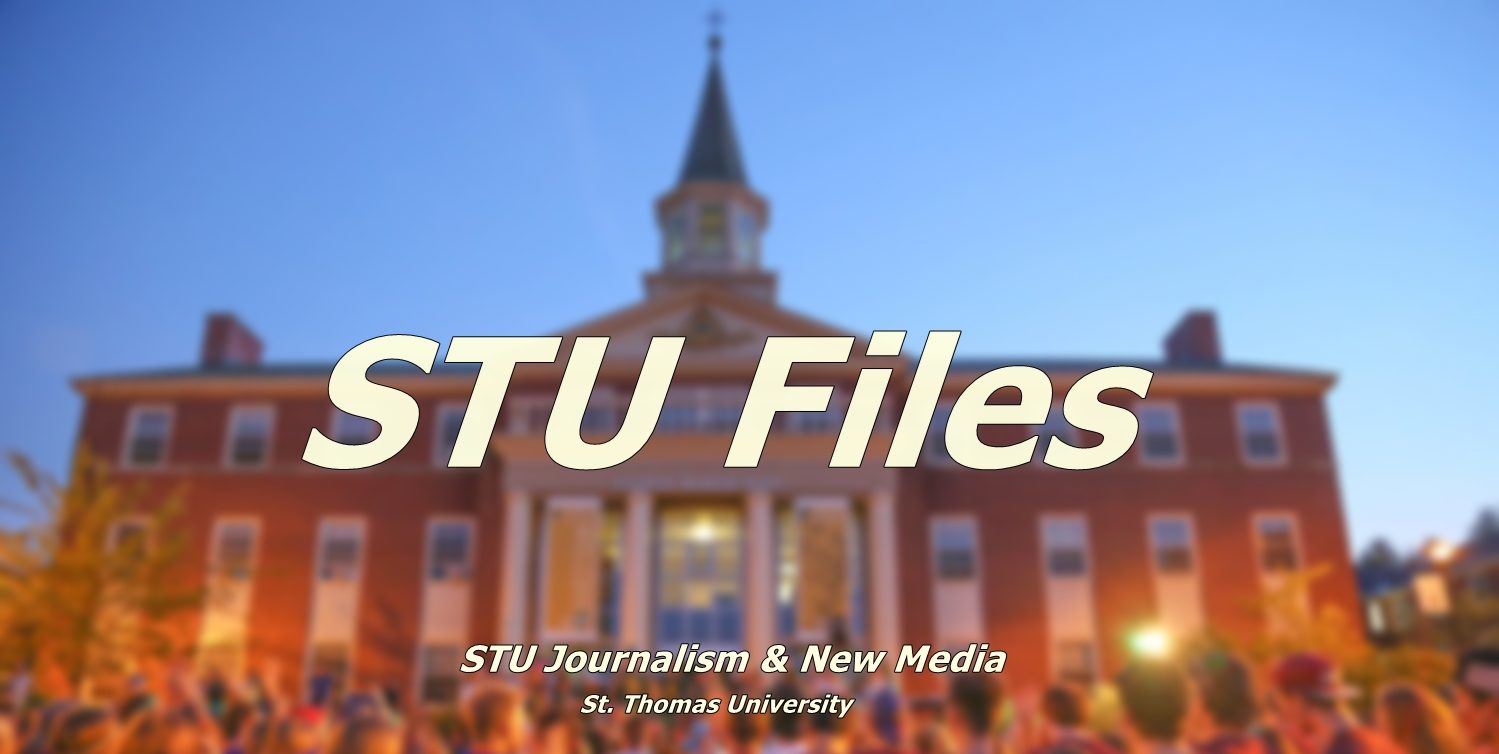STU Faculty, Students Stand With Wet’suwet’en People
Well over 60 members of the St. Thomas University community gathered in protest of the Costal GasLink pipeline in British Columbia on Thursday in the school’s upper courtyard between McCain Hall and Mulroney Hall.
The pipeline, which goes through the land of the Wet’suwet’en First Nation, has been a polarizing topic in Canada in recent weeks. Blockades of trains and other protests have sprouted across the country.
The protest at STU moved to nearby Duffie Drive, on the University of New Brunswick campus. There, protesters blocked the road for over thirty minutes, forcing vehicles to turn around.

Although it was cold, snowing, and the wind was blowing, the protesters chanted “block the ports! Block the rails! Put the RCMP in jail!” and “Hey Hey! Ho Ho! RCMP has got to go!” loudly without stop.
Many held colourful signs and banners, showing words of support and protest.
Jacob Moore, who participated in the protest, is a first year student at St. Thomas.
“We are here in solidarity with Wet’suwet’en First Nations, protesting what the RCMP is doing in their territory, and also that Coastal GasLink is trying to put a pipeline through it,” Moore said.
“We’re blocking the road, and that guy just honked because he knows what’s up.”
UNB campus security arrived about fifteen minutes into the blockade. The officers redirected traffic around the blockade.
Many who drove by honked horns or waved in support of the protest. Others showed visible signs of frustration, either by shouting out car windows or by using obscene gestures.
The peaceful protest continued for about thirty minutes before the road was opened again. Organizers of the event were impressed with the number of people at the event, despite the poor weather.
Before the blockade, protesters joined to sing traditional Wolastoqiyik songs and show support for the Wet’suwet’en people.

The movement of support across Canada has lead many to question the level of support the Canadian government has for Indigenous peoples. The RCMP have been deployed to remove Wet’suwet’en land defenders from their posts. This use of the RCMP has become highly questioned.
Prime Minister Justin Trudeau’s government, as well as the British Columbian provincial government, have made a tentative agreement with the Wet’suwet’en hereditary chiefs. This deal will likely not be formally agreed upon until the Wet’suwet’en people vote on it, in a sort of referendum-style vote.
In the meantime, protests and blockades continue all over Canada as many continue to protest the treatment of the Wet’suwet’en people.

